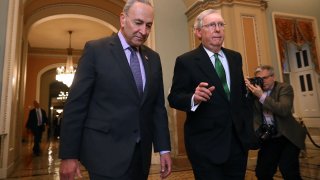
- Senate Majority Leader Mitch McConnell, R-Ky., and Minority Leader Chuck Schumer, D-N.Y., have different opinions relative to the generosity of unemployment benefits.
- McConnell's stimulus plan wouldn't offer a weekly benefit subsidy. Schumer's would reinstate the CARES Act's $600 weekly enhancement.
- Both plans would extend benefits for self-employed, gig and other workers, though McConnell's offers less.
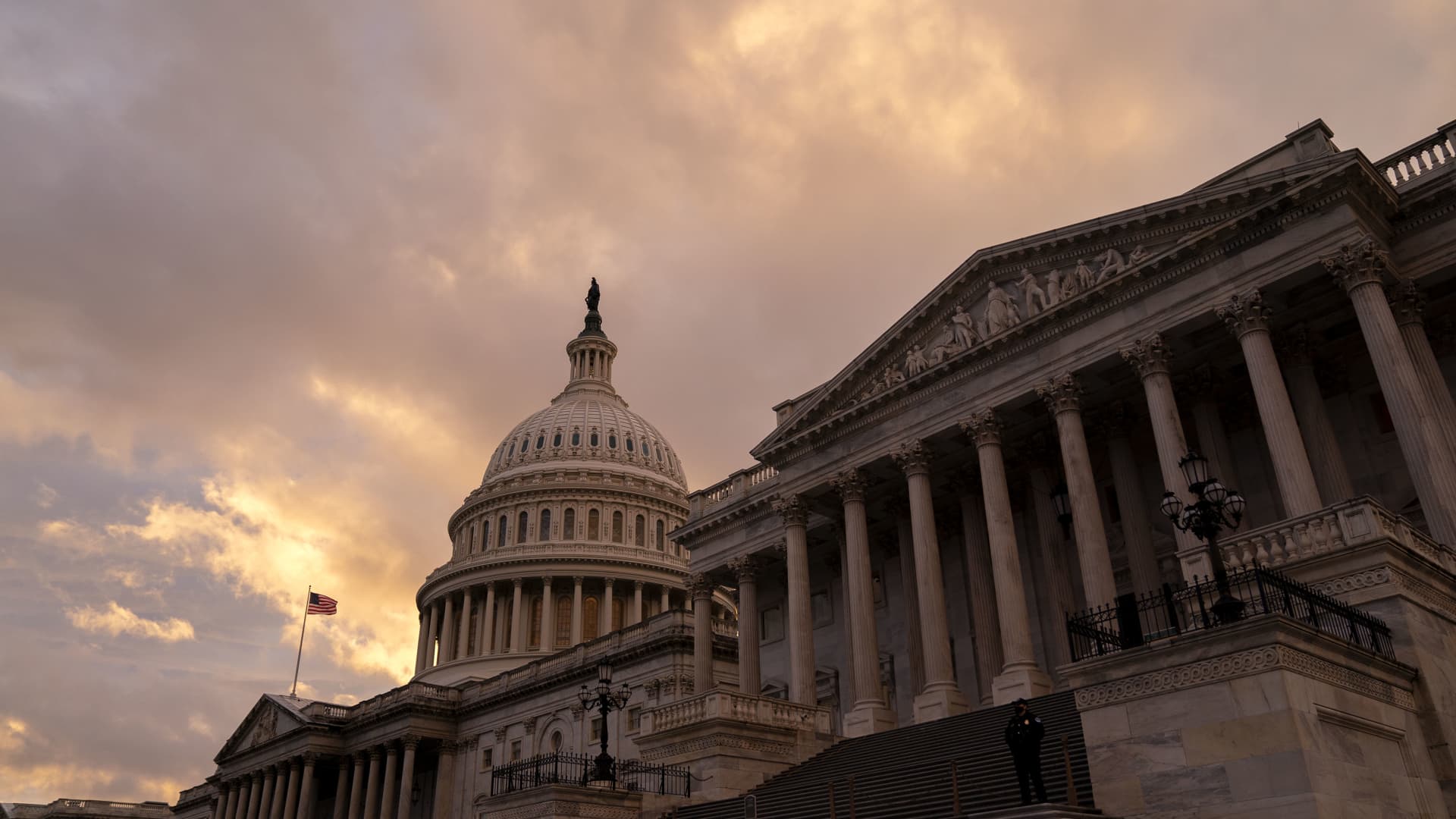
Democratic and Republican party leaders in the Senate are at odds over the aid they would give unemployed Americans in any upcoming coronavirus relief package, according to outlines of their legislative proposals.
Their positions, which have endured despite months of negotiations over the contours of more stimulus, suggest it may be hard to reach a compromise.
More from Personal Finance:
Nine months later, unemployment claims still near record high
Why a second round of PPP loans may fall short for small businesses
42% of people falling behind as Covid-19 widens the wealth gap
Meanwhile, key aid programs for the jobless are set to expire by the end of December. That would leave millions without unemployment benefits at the same time that protections for renters and student loan borrowers would end.
Democrats and Republicans in Congress — including Senate Majority Leader Mitch McConnell, R-Ky., and Senate Minority Leader Chuck Schumer, D-N.Y. — issued a flurry of proposals on Tuesday.
Money Report
The GOP leader's plan would extend the duration of jobless benefits for self-employed, gig and other workers by up to three months and wouldn't provide a supplement to state weekly aid. Schumer's plan would re-up a prior $600 a week enhancement to benefits and extend benefits for a longer period of time.
"They seem far apart at the moment," Mike Leachman, vice president for state fiscal policy at the Center on Budget and Policy Priorities, a left-leaning think tank, said of the lawmakers. "But the need is significant."
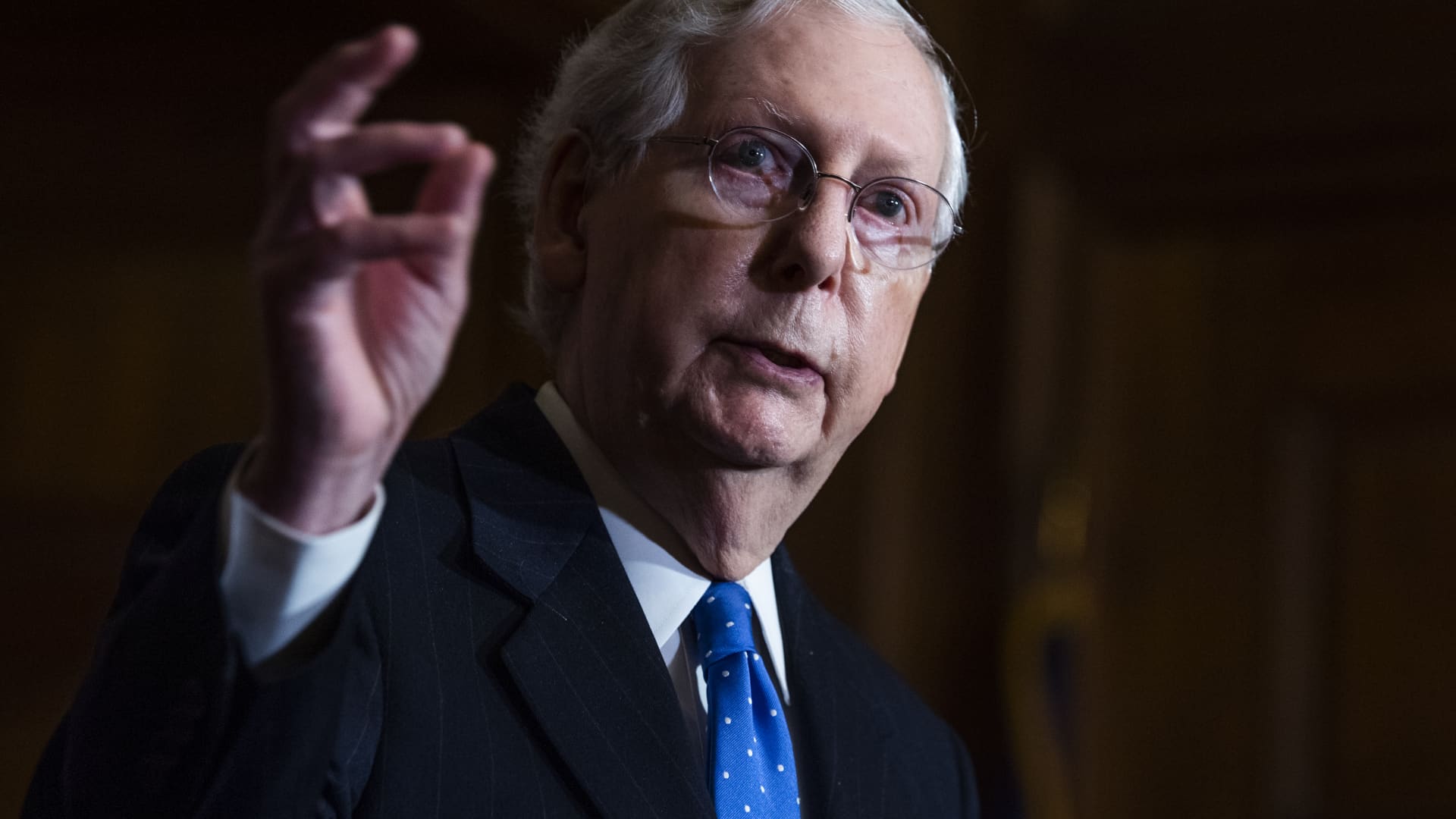
McConnell stimulus
Attaching relief measures to a spending bill that must pass by Dec. 11 to avert a government shutdown seems the most likely route for success, experts believe.
McConnell's plan would extend unemployment benefits by a month through two temporary programs created by the CARES Act.
However, it wouldn't offer a supplement to weekly unemployment benefits — an approach that differs from a plan he issued in September, which gave workers a $300 weekly subsidy.
The CARES Act, a $2.2 trillion relief law passed in March, gave unemployed workers an extra $600 a week on top of their typical benefit. It expired in July.
Absent a weekly supplement, the average jobless American would have received $318 a week in benefits in October, according to the Labor Department.
In addition, the CARES Act offered jobless benefits to self-employed, gig, freelance and other workers traditionally ineligible for state unemployment insurance. The law also offered up to 13 extra weeks of aid to workers collecting state benefits.

Both programs are scheduled to end the last weekend in December. Around 12 million workers would lose their benefits if the programs lapse, according to a recent analysis published by the Century Foundation, a progressive group.
McConnell's proposal would allow workers to apply for program benefits until the end of January. At that point, anyone receiving aid could do so up to the end of March.
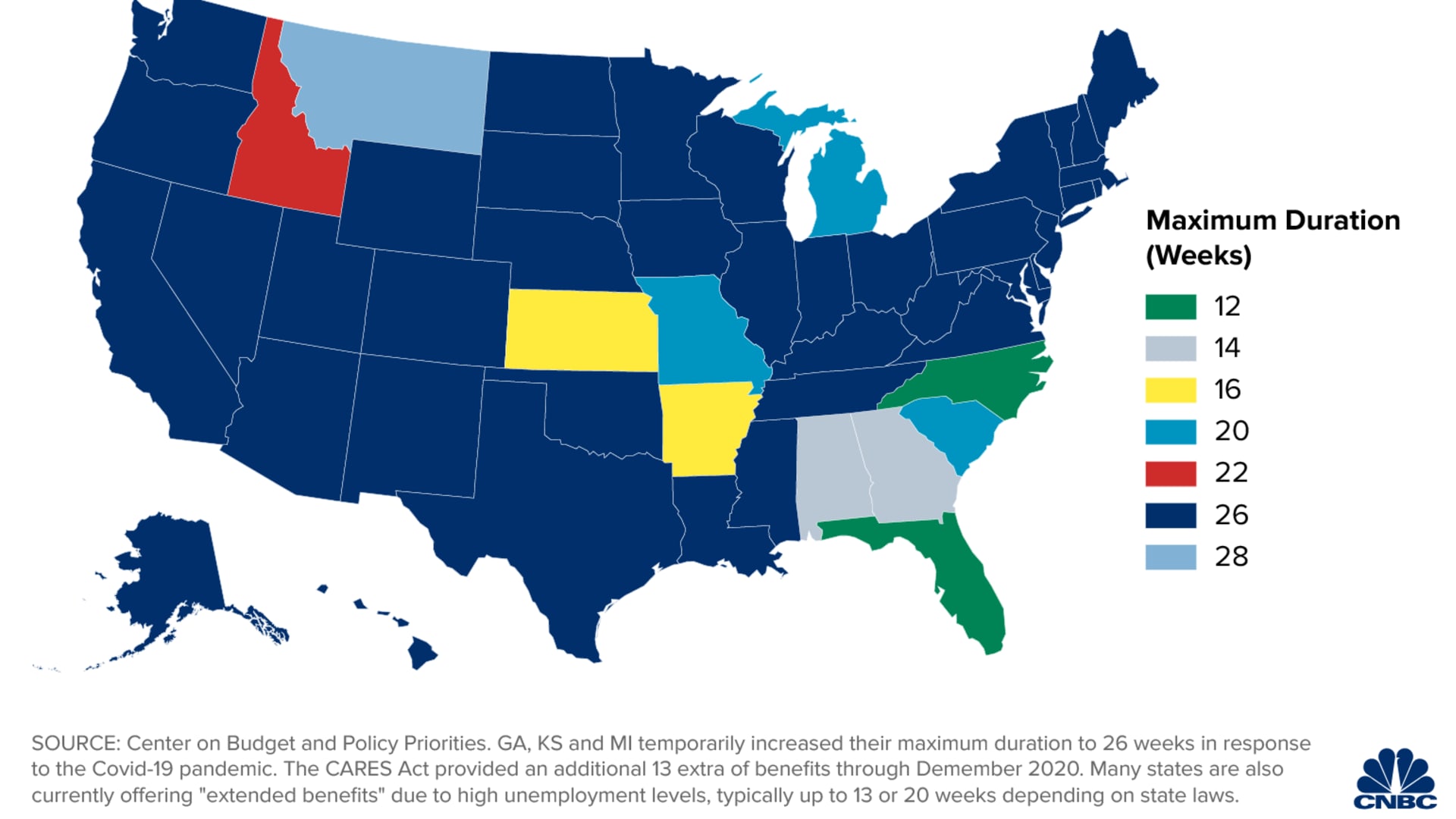
The Republican leader has supported about $500 billion in new aid spending and said he prefers a smaller, "targeted" relief bill. McConnell said he spoke with White House officials about what President Donald Trump would sign into law.
His proposal also includes money for small businesses and child care and offers liability protections for businesses, among other things.
Before unveiling his plan, McConnell on Tuesday shot down a $908 billion stimulus compromise reached by a bipartisan group of House and Senate members. That plan offered a $300 weekly boost in benefits through March.
On Wednesday, Schumer and House Speaker Nancy Pelosi, D-Calif., said that measure "should be used as the basis for immediate bipartisan, bicameral negotiations."
"Of course, we and others will offer improvements, but the need to act is immediate and we believe that with good-faith negotiations we could come to an agreement," the lawmakers said in a statement.
Spokespeople for McConnell didn't return a request for comment.
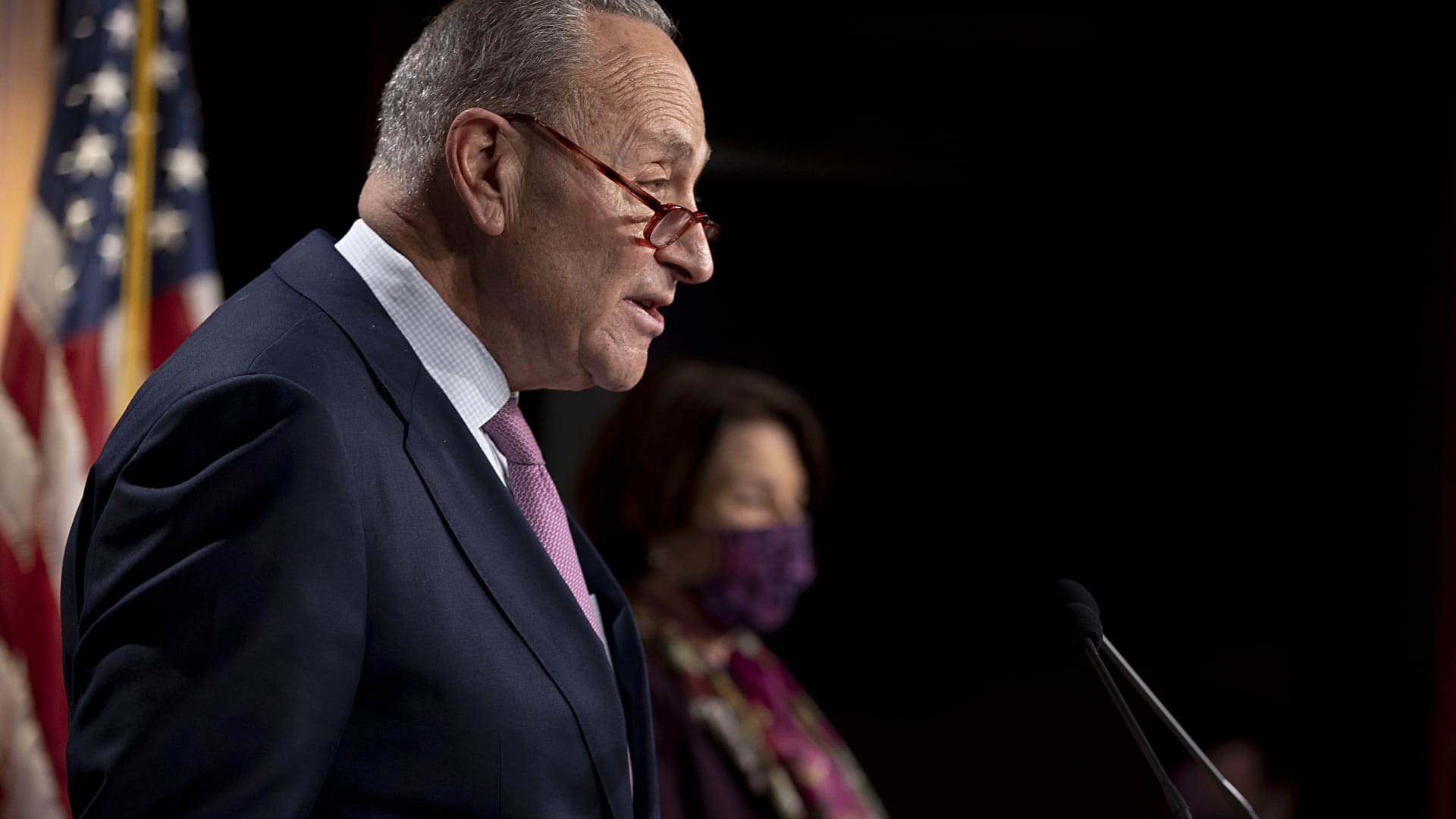
Schumer stimulus
Meanwhile, Schumer, along with four other Democratic senators, introduced a bill on Tuesday that, relative to McConnell's proposal, offers more benefits to the unemployed.
The Democrats would reinstate the $600 weekly boost for all unemployed workers through October 2021. Some workers would be able to collect the $600 subsidy until early January 2022, according to the proposal.
The legislation — the American Worker Holiday Relief Act — would offer the benefit retroactively to weeks of joblessness dating to Sept. 5, 2020.
Further, the Senate Democrats would give self-employed, gig and other workers in the Pandemic Unemployment Assistance program up to 65 weeks of total benefits — almost double the current 39 weeks. They could get more if states still have high levels of unemployment.
The Democrats would also extend Pandemic Emergency Unemployment Compensation, which is the CARES Act program offering extra weeks of state unemployment insurance.
Workers could get up to 39 weeks of PEUC benefits — more than the current 13 weeks. They'd be eligible for additional weeks in states where the three-month average unemployment rate is above 6.5% — up to 78 total weeks when the rate exceeds 8.5%.
Roughly 9 million workers are collecting benefits through the PUA program and 4.5 million through PEUC.






